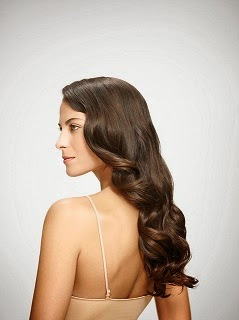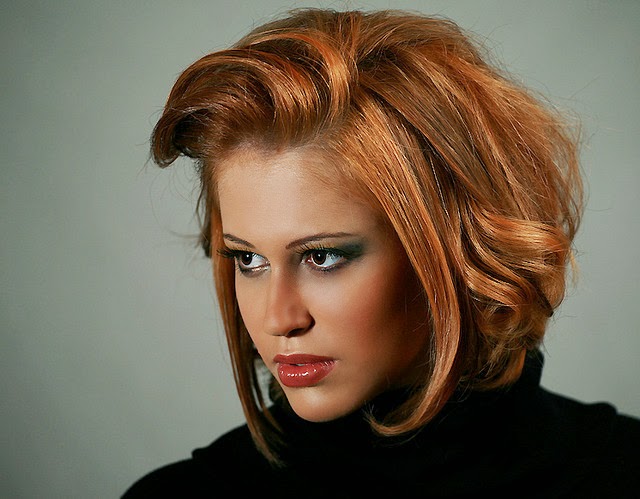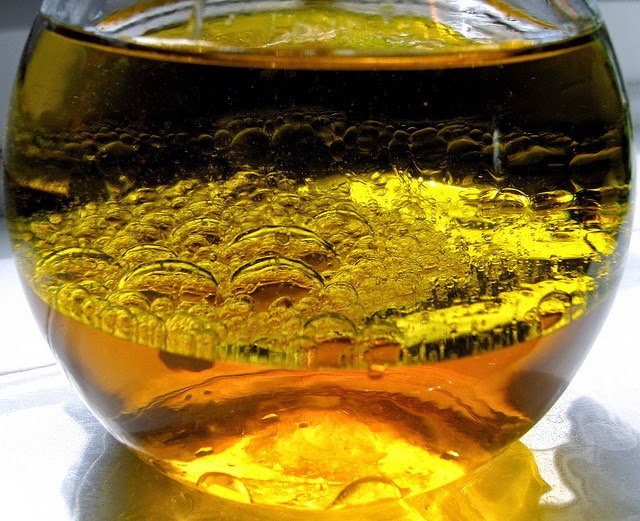
|
| [1] |
What are natural oils?
Natural oils for hair can be anything from argan oil to olive oil as long as they are derived from a natural source and there is no other added ingredients. As these oils are pure, they are a powerful source of moisture and can readily smooth and nourish dry hair in much the same way as your own natural oil produced by your scalp.
As well as being a natural product and good for the environment, they are also generally quite cheap and a little goes a long way. They're not always the best product to use though, and there are certain circumstances under which you can best use natural oils for hair. Other times, the more standard hair products are better depending on your own situation and needs.
When should you use them?
Natural oils should only be used on hair that is very dry. Dryness itself isn't necessarily a good enough reason to use them because the more mild cases will respond better to leave-in conditioners and hair serums.
This is because unlike conditioner, actual pure oil is a dense source of lipids. Conditioners and other products and treatments for dry hair are oil in water emulsions and there is less actual oil present. Using a pure oil in their place can offer more intense moisture, but it also easily weighs down the hair and can even cause it to look and feel unwashed.
They're also not the best product for damaged hair. Whilst they will nourish damaged hair and help treat the symptomatic dryness that damage causes, you should still be using protein treatments to help repair this damage in conjunction with your natural oil for the best results. Doing so will help lead to less dryness overall as the damage is gradually repaired over time, rather than just treating the visible symptoms.

|
| [2] |
How to use natural oils
You can use your natural oils for hair in a few different ways. If you plan to blow dry and/or straighten or curl your hair, it's best to apply a tiny amount to damp hair beforehand. This helps lock in moisture and keep your hair from drying out more in reaction to the heat of the styling tools.
If you're using the oil to help boost moisture as well as finish and protect your style though, it is best used after styling on dry hair. This use coats the hair and enhances shine whilst protecting from humidity.
In any case, the actual amount of oil used should always be very little. For mild dryness on shoulder length hair, apply a pea-sized amount of oil. For more severe dryness or for use on longer hair you can double this amount.
When applying, massage the oil over your palms first to evenly distribute it across your hands. Apply this to your hair by gently patting it on from mid-lengths to ends all over. A light touch is best for this as it allows small amounts of the oil to gradually be distributed to your hair and not all end up in one place.
After you're sure the natural oil is evenly distributed, you can then massage it into your lengths gently. Do this until your hands stop shining and most of the oil is gone off of them. This will soak into your hair over the next 10 minutes, though your hair still shouldn't feel noticeably oily.
If your hair feels oily—especially after the next 10 minutes when it should have soaked in—you have used too much of the product. It may take some experimentation to gauge the exact amount necessary for your length and how dry your hair is and the recommendations earlier in this section may need adjustment. A good idea is to work from them and fine the right amount for your own hair.
Which oil is best for hair?

|
| [3] |
No particular oil is necessarily better for your hair as they all have their own merits and all of them will work. However, working with natural oils for hair means that if the oil has a fragrance, this will transfer to your hair. If you can't stand the smell of olive oil for example, this is a good reason not to use this product.
Other oils like argan oil and almond oil are known for their nutrients like vitamin E, as well as their favourable texture. These features help lessen any chance of weighing your hair down and may offer more benefits to dryness due to the vitamins they contribute to your hair and scalp.
If all you have on hand is olive oil or another cooking oil, this will work. If you want the best results though, try pure argan oil, almond oil, or jojoba oil. Ensure that these products are pure oil though or else they may contain added ingredients.
Morrocan oil is not oil for example, and the actual amount of oil contained within is very low. It's a smoothing serum containing silicone as the primary ingredient and a tiny amount of added oil. If you're using natural oils for hair, the only ingredient in the product should be the oil, and perhaps a small amount of antioxidant to prevent rancidity.
Need more help choosing or using natural oils for hair? Leave a comment for tailored advice and more natural remedies for your hair problem...
More information:
- How to treat dry hair - Discover some of the other ways to manage dry hair and keep it looking and feeling properly hydrated...
- How to use deep conditioner - Discover how to nourish your hair and de-stress at the same time...
No comments:
Post a Comment